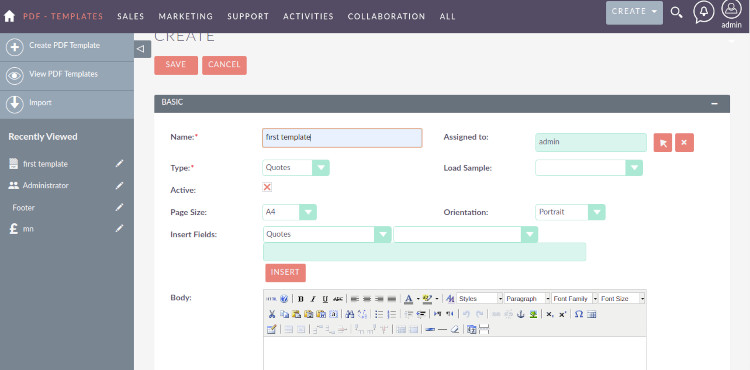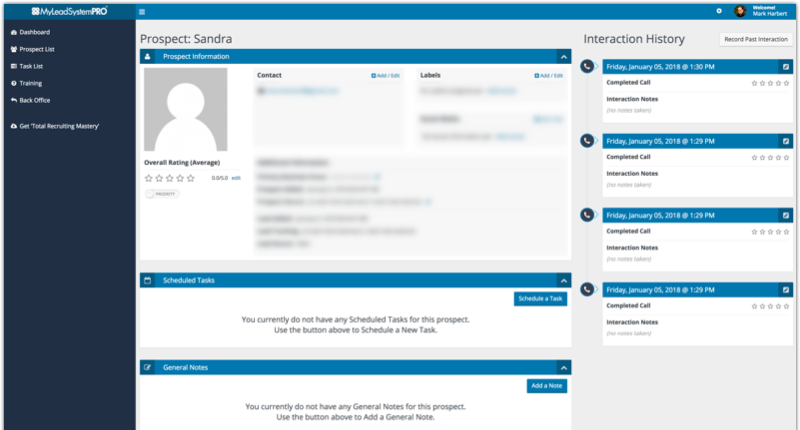In today’s article, we are going to discuss the importance of a network marketing planner and how it can help you be more effective and efficient in your business.
Many people who are new to entrepreneurship tend to “wing it” and simply do what they “feel” they need to do in their business. As the business starts to progress and the tasks start piling up, things start to feel very chaotic.
This creates stress. Which, of course, effects the quality and quantity of work that you put into your business.
The key to avoiding this is organisation.
And the key to organisation is planning.
Table of Contents
Why Planning Is Important
Keep It Centralised
What To Put In Your Planner
1. Scheduler
2. Followups
3. Prospect List
4. Notes
5. Goals
MLM Planning Tips
1. Keep A Pad By Your Bed
2. Write Everything Down
3. Plan In The Evening
4. Set Achievable Goals
5. Direct Your Focus
6. Schedule “Me” Time
Useful Tools
1. HubSpot CRM
2. SuiteCRM
3. DigitalMentors CRM
Summary
Why Planning Is Important For MLM

When I first got started with my network marketing business, I did whatever I “felt” needed doing. I was just flying by the seat of my pants. There was so much to do and I was constantly stressed, thinking that I was forgetting something.
Like any business model, time management is a crucial skill that you have master in order to succeed long term.
There’s a lot to juggle, especially as a solo-entrepreneur.
And when your business starts to grow, it only gets worse.
You may one day have 10 or 20 people going through your recruiting process all at once. And you’ll find it impossible to keep track of where everyone is in the followup process. Your followup process will become ineffective and chaotic, causing you to quickly get burned out and want to quit.
So why not utilize a smart planning strategy right away, before things get away from you?
Utilizing a centralized network marketing planner is an excellent way to keep track of what you need to do, as well as what you’ve already done.
This will free up valuable brain-space because you know you’re not forgetting anything.
It’s all recorded in your network marketing planner after all.
Keep Your Calendar and Task List Centralised

It’s a good idea to keep your network marketing planning centralised.
Depending on your own preferences, you might want to use an app or computer program. Some people prefer a physical network marketing planner in the form of a book, binder, or journal.
Whether you choose to go digital or physical with your planner doesn’t really matter.
It’s all about what works best for you.
I mean, it is your business, right?
The point is, all of your planning and recording should be kept in one place. Don’t use your smartphone Notes app for some stuff, sticky pad notes for others, and a Notepad file on your computer for yet other stuff.
You may as well not plan at all because now you’ll need to remember where you recorded what…
If you have everything accessible in one centralised place, you’ll know exactly where you need to look if you need a refresher on what you need to do next.
What To Include In Your Network Marketing Planner
There are 5 key components that your network marketing planner should consist of:
1. Scheduler

As your business grows, you’ll start to have a lot on your plate. Especially if you’re juggling a full time job in addition to your business…
So your network marketing planner should include a scheduler and calendar so that you can officially schedule tasks and events. If you ever find yourself forgetting what you need to do on any given day, you can just refer to your schedule.
Personally, I prefer digital calendars. You can have access to your calendar on your smartphone and even set reminders so that you’ll definitely be reminded of a task in case you’ve lost track of time.
Life is hectic after all. And it’s OK, even necessary, to use tools to help you navigate your life and business.
Here’s a few options that I like:
- iPhone Calendar App
- Google Calendars
- Calendly
- Acuity Scheduling
- Nextcloud
Nextcloud is my personally preferred solution, though I don’t necessarily recommend it for many people. It’s a self-hosted cloud storage and office suite, but it’s quite technical to set it up.
There’s no need to over-complicate this. Your native calendar app on your smartphone will do just fine.
2. Followups

As we mentioned already, you may soon have 10 or 20 people going through your recruiting process all at once.
As you’re making your followup calls, you may forget at what stage any particular individual is at… and say something stupid that doesn’t make any sense within the context of the recruitment stage of your prospect.
And it could cost you real money.
So you need a way of keeping track of your interactions with customers and prospects.
This is where a CRM (customer relationship manager) comes in.
I love the platform that DigitalMentors offers. It’s what I personally use and is what I recommend to anyone who’s looking for a solution.
You could also consider options like SuiteCRM or Hubspot CRM. We’ll talk more about these later.
3. Prospect List

Your prospect list consists of anyone that you plan to share your business with in the future.
Realistically, it should consist of every single person that you know… and it should be constantly getting bigger as a result of personal networking and meeting new people throughout your daily life.
Eventually, this list will grow to hundreds of contacts. And you simply can’t keep track of all that in your head.
I know I sure can’t!
The DigitalMentors CRM we mentioned earlier is also an excellent solution for this, though I recommend keeping a physical notebook stashed away somewhere with all of your contacts’ information recorded.
The CRM solution will help you keep track of who you’ve prospected already, who said “no” unequivocally, and who asked you to check back again at a later date, etc.
4. Notes

You should also have a section within your network marketing planner for generic notes that just don’t really fit within an existing category.
You’ll find yourself needing to do a bunch of things that you never could have predicted as your business grows. Write it all down and check things off as you’re completing the tasks.
There’s no better feeling than checking off a bunch of items on a to-do list at the end of a long and successful day!
5. Goals

You could also have a section within your network marketing planner for goals that you’re planning to achieve. Keep only your short-term, actionable, tangible goals in your planner. Break them down into daily, weekly, and monthly time frames.
Any longer term goals should be mapped out as well. But instead of keeping them in your network marketing planner, hang these up on your wall in your office or bedroom, or on your mirror where you’ll see them every day.
Some MLM Planning Tips
Some parts of network marketing planning is just about changing your habits. The way you do things.
So let’s talk about 6 tips that you can implement in your life to help you manage your business better, mentally and emotionally.
1. Have A Notepad Beside Your Bed

Have you ever tried falling asleep, but your brain just won’t let you? You’ve got all sorts of ideas rattling around in your head. You’re trying to remember all of the things that you cannot forget to do the following day.
You find yourself getting more and more worried that you won’t remember what needs to get done…
Well there’s a very simple solution to this:
Write. It. Down.
Keep a notepad and pen on your bedside table. Many nights you may not need it, but it’ll be a real blessing when it’s there.
Because when a thought or idea occurs to you, you can simply write it down. And you’ll know that you will not forget the stroke of brilliance that you just had.
It’ll give you the peace of mind that you need to let your mind slow down so that you can get that beauty rest.
2. Write Everything Down

This doesn’t just apply when you’re trying to fall asleep.
The truth is, you never when know when inspiration will hit you. It could be in the shower. While you’re running. Doing the dishes. Or doing some other mundane task while at work.
Well, it’s a good idea to write all of those ideas down throughout the day as they hit you so that you won’t forget.
Personally, I use the Notes app on my iPhone. You may prefer to carry around a small pocket notebook.
Figure out what works best for you and put it to use.
3. Plan Your Days The Night Before

Have you ever tried to wake up early, plan out your day, and just completely failed to implement your plan?
It’s way more common than you think.
I learned early on in my career that I was way more effective if I planned out my day in the evening, before going to bed.
I believe that going to bed with my next day fully planned out and structured allowed my brain to prime itself for action as I slept.
When I would get up the next morning, I knew exactly what I needed to do and I could jump into action immediately, without having to plan and think everything out first.
For me, this is one of the most powerful productivity hacks I’ve ever learned.
It’s very simple.
But also very effective.
4. Set Achievable Goals

Everyone has goals that they’re looking to achieve when they start their network marketing business, and you should definitely put those goals somewhere in your network marketing planner.
The problem with most people’s goals is that they are not achievable.
Many folks will set goals like:
- I want to recruit 20 people this month
- I want to make $100k this year
- I want to build a team of 5000 people this year
These are fine goals, but they can also be problematic. Because if you’re brand new to network marketing, those goals will simply seem too far away. And when you fail to hit those exact goals, you risk feeling extremely disappointed and losing the motivation you need to keep going.
Instead, you should set goals that are achievable. Goals that are directly within your power.
For example:
- I will invite 2 people per day
- I will introduce myself to 1 new person per day
- I will post twice a day on social media this month
These goals are much more realistic and achievable. They’re within your own power. And when you hit these goals, you’ll feel great about yourself. You can ten re-evaluate and set your goals for the next week or month.
You should also not focus on your long term goals on a daily basis.
If you have a 1 year goal, or a 5 year goal (which you should!), it’s really not a great idea to focus on those goals every day.
Instead, you should set goals for shorter time periods. This way, you’ll be able to more effectively measure how successfully you pursued those goals.
And your shorter time-frame goals should lead you to achieve those bigger, more exciting long term goals.
5. Direct Your Focus

It might feel good to focus a lot of your energy on dreaming, setting your goals, reading books, and going through training courses.
But you need to ask yourself…
Is what I’m doing with my time directly contributing to the growth of my business?
Look, education and motivation is important. But it does not directly bring in the money.
What brings in the money is prospecting and recruiting.
Income producing activities.
So I encourage you to become hyper-aware of how you’re spending your time. If what you’re doing with your time does not directly contribute to your business growing or bringing in income, then you may need to refocus your energy.
6. Schedule “Me” Time

One of the problems that many entrepreneurs have is that we don’t always know how to relax.
You’re so excited about the trajectory of your business and how it could change your whole family’s life. It’s all you think about, day in and day out. And it’s all you spend your time on.
Listen, tenacity is important.
You’ll succeed faster and go farther than others by working harder than they do.
But you also need to take some breaks.
Refresh.
Take your mind off of the work for a while.
Give your brain a reset.
I highly encourage you to schedule in some personal time that you spend on something completely unrelated to business.
Make it a full day at least.
Depending on where you’re at in your business journey, you may want to schedule 1 day per week as “me” time. Or maybe a day per month.
You’ll figure out what works best for you. But whatever you do, don’t ignore this.
Don’t allow yourself to get burnt out.
You’ll find that after taking a day off, you’ll feel refreshed, invigorated, and ready to get back to work. And there’s a very good chance you’ll come back to work with some exciting new ideas that occurred to you as you were resting and just doing the things that you love to do.
Useful Network Marketing Planner Tools
As we’ve talked about already, the best network marketing planner is one that can house all of your planning, scheduling, and notes in one centralised location. This way, you’ll always know exactly where to look when you’re figuring out what’s next on your to-do list.
So the ideal solution will have the following sections:
- Calendar
- Contacts
- Customer Relationship Manager
- Notes
- Goals
Ultimately, the best network marketing planner is just a comprehensive CRM.
It will allow you to store all your contacts’ information and keep track of the interactions you’ve had with them. Ideally, it will also have a calendar and notes section that will let you add notes and tasks independent of managing your relationships.
And you won’t need to break the bank either. Let’s talk about my 3 favourite options.
1. HubSpot CRM
HubSpot offers a free CRM solution that’s actually very well built. It has everything that I would be looking for in a CRM, except that it’s not specifically designed for MLM.
But that’s really not a big deal.
Here’s the pros of HubSpot CRM:
- Completely free
- Easy to set up and use
- Track prospect interactions
- Track sales and recruits
- Syncs with Google or Microsoft Office calendar
The one downside, as I mentioned, is that it’s not specifically designed for network marketing.
2. SuiteCRM
SuiteCRM is a solution that I’m very fond of.
It’s completely free and open source. This means that the software is developed and maintained by community members rather than a corporation. The code is fully open, audit-able, and available to the public.
So you trust that your data is safe and secure because any potential for data leaks will be quickly revealed and repaired. It’s not a black box like software maintained by large corporations.
Plus, if there’s a feature that many community members want, it usually gets built quickly because the users of the software are also the developers and support team.
Here are the features I like:
- Completely free
- Open source
- Track prospect interactions
- Track sales and recruits
- Self hosted
- Calendar and notes sections
- Integrates with Nextcoud
There are a few downsides to SuiteCRM though.
Like HubSpot’s solution, it’s not specifically designed for network marketing. This really isn’t a big deal because you can easily adapt it for your needs.
The major downside for some people however, is that SuiteCRM is a self hosted solution. So you will need some basic technical skills to set it up on your own domain or server.
If you don’t have those skills and you’re anxious to get up and running, I recommend having a look at our next recommendation.
3. DigitalMentors CRM
DigitalMentors, formerly known as MLSP, is a training and software platform built specifically for network marketers looking for digital tools to take their business online.
They developed a comprehensive CRM, specifically designed for the needs of an MLM business, that can track all of your interactions and schedule upcoming calls, meetings, or events.
Here’s what I like about it:
- Easy to set up and use
- Store contact list and info
- Track prospect conversations
- Track sales and recruits
- Designed specifically for MLM
The downside to the DigitalMentors CRM software is that it isn’t free. You need to become a member of the DigitalMentors platform, which will cost roughly $50 per month.
It also doesn’t come with an independent calendar. So you can’t track tasks that are independent of interactions with prospects or customers.
Let’s Sum It All Up…

The solution that works best for you will depend on exactly what you’re looking for.
The truth is, it’s different for everyone depending on your personality, style of doing business, your budget, and your level of technical skill.
If you’re doing some online strategies to attract leads, then you might want to consider the Digital Mentors CRM. They designed it specifically for network marketing, but also with internet marketing and/or affiliate marketing in mind.
If you’re doing primarily offline traditional network marketing, then you may want to go for HubSpot’s CRM. You’ll be able to access everything it has to offer for free so you can focus completely on finding customers and builders.
If you do have some tech skills and prefer self-hosted and open source software (like me), then you may want to have a look at Suite CRM.
Personally, I use DigitalMentors CRM.
It does exactly what I need it to do and I simply use an external calendar and notes software.
But you don’t have to use a software program as your network marketing planner…
Depending on your technical abilities and personal style, you may want to opt for a physical planner or notebook.
And there’s nothing wrong with that. Do what works best for you.
How about you? Which software do you like best? Is there a network marketing planner that we missed in this article?
Feel free to leave your thoughts in the comments section below.

Written By:
Johnny Friesen
Just a blue collar guy passionate about finance, network marketing, and writing. When I'm not working on a car, you'll find me working on various side hustles and sharing my musings with the world.
ATTENTION: MLM and Direct Sales Reps...

- Attract Qualified Business Leads
- Enroll Customers Without Prospecting
- Build A Team Of 3000+ People























